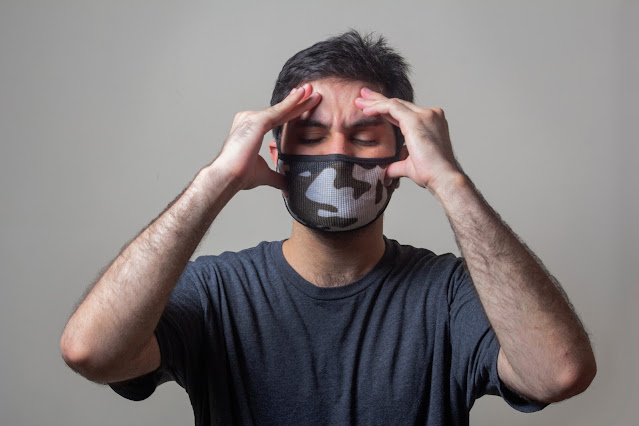Intro
Headaches can be one of the most debilitating and frustrating ailments. Whether you suffer from tension headaches, migraines, or sinus headaches, finding the right headache medicines to provide relief can be difficult. Fortunately, there are a variety of effective medicines available that can help reduce the pain and discomfort associated with different types of headaches. In this blog post, we will discuss 5 headache medicines that can effectively treat different types of headaches.
1) Ibuprofen for tension headaches
Ibuprofen is an effective pain reliever for tension headaches, one of the most common types of headaches. Tension headaches are caused by muscle contraction in the neck and scalp, and can be triggered by stress, fatigue, depression, anxiety, or poor posture. Ibuprofen works by blocking the body's production of hormones that cause inflammation and pain. It also reduces swelling around the neck and scalp muscles. When taken as directed, ibuprofen can be an effective way to relieve the pain associated with tension headaches. Be sure to talk to your doctor if you are experiencing recurrent headache causes and treatments before taking ibuprofen.
2) Aspirin for cluster headaches
Cluster headaches are a type of headache that can be extremely painful and debilitating. Commonly known as suicide headaches, cluster headaches can cause extreme discomfort and can be difficult to treat. Fortunately, aspirin has been found to be an effective treatment for cluster headaches.
Aspirin works by reducing inflammation in the head, which helps relieve the pain associated with cluster headaches. Additionally, it helps reduce the frequency of cluster headaches and the intensity of the attacks. Aspirin also helps to alleviate other symptoms associated with cluster headaches, such as nausea, photophobia (sensitivity to light), and rhinorrhea (runny nose).
It is important to understand the causes of your headache before taking any medication. Cluster headaches may be caused by sinus problems, allergies, or even a structural problem in the head or neck. If you experience frequent or intense cluster headaches, it is important to consult a doctor to determine the root cause of your headache and find the best treatment plan for you.
When taking aspirin to treat cluster headaches, it is important to follow dosage instructions carefully. Overdosing on aspirin can lead to serious health complications. It is also important to remember that aspirin should not be used if you have asthma, bleeding problems, ulcers, or other health conditions.
Aspirin is a common and effective treatment for cluster headaches. However, it is important to understand the causes of your headache and consult with a doctor before taking any medication. By doing so, you can find the best treatment plan for you and start feeling better soon!
3) Triptans for migraines
Triptans are one of the most effective headache treatment medicines for treating migraines, which are a type of headache that has severe symptoms such as throbbing, nausea, and sensitivity to light and sound. Triptans work by targeting serotonin, a neurotransmitter that is responsible for regulating pain signals in the brain. By blocking the serotonin receptors, triptans can help to reduce inflammation and pain in the head.
There are a number of reasons why you might experience headaches, from stress and lack of sleep to certain types of illnesses and underlying conditions. It's important to identify the cause of your headache so that you can determine the best headache treatment option for you. In the case of migraines, triptans are often the most effective solution. They come in both pill and nasal spray form and can provide quick relief from pain. However, it's important to speak to your doctor before taking any medication, as triptans may not be suitable for everyone.
It's also important to remember that even though triptans can be an effective headache treatment, they should not be used as a replacement for lifestyle changes. Making sure you get enough rest, managing stress levels, and eat a healthy diet are all important ways to reduce the frequency of headaches.
4) Caffeine for sinus headaches
Caffeine is a great way to naturally treat a sinus headache. It helps by constricting the blood vessels and reducing the pressure around the head. Caffeine can be found in coffee, tea, sodas, and even chocolate. However, it’s important to note that caffeine should not be used as a long-term solution for treating headaches as it can lead to headaches of its own if consumed in large amounts. Additionally, caffeine has been known to increase anxiety levels, so be sure to drink it in moderation. Drinking just one cup of coffee a day can help ease a sinus headache, so don’t be afraid to give it a try next time you experience a headache.
5) acetaminophen for rebound headaches
Acetaminophen is one of the most effective medicines for treating rebound headaches. Rebound headaches are caused when a person overuses pain medications like acetaminophen, ibuprofen, and aspirin. When this happens, the brain becomes used to these medications and needs more of them to achieve the same level of relief. As a result, people with rebound headaches will experience frequent headaches and increased sensitivity to pain.
Fortunately, acetaminophen can be used to treat rebound headaches. It works by blocking the pain signals sent by the brain to the body and preventing the release of certain chemicals that increase inflammation. As a result, taking acetaminophen can help reduce pain and decrease the frequency of headaches.
It is important to note, however, that there may be other causes for head aches besides rebound headaches. If you are experiencing persistent headaches, it is best to talk to your doctor to determine the underlying headache cause and get the appropriate treatment. Your doctor may recommend lifestyle changes such as reducing stress, exercising regularly, and getting adequate rest in order to reduce the frequency and intensity of headaches. They may also suggest taking OTC pain relievers such as acetaminophen to help manage symptoms.
Regardless of your headache reasons, acetaminophen is an effective medicine for treating rebound headaches and can help relieve your symptoms so that you can get back to feeling your best.





.png)

0 Comments